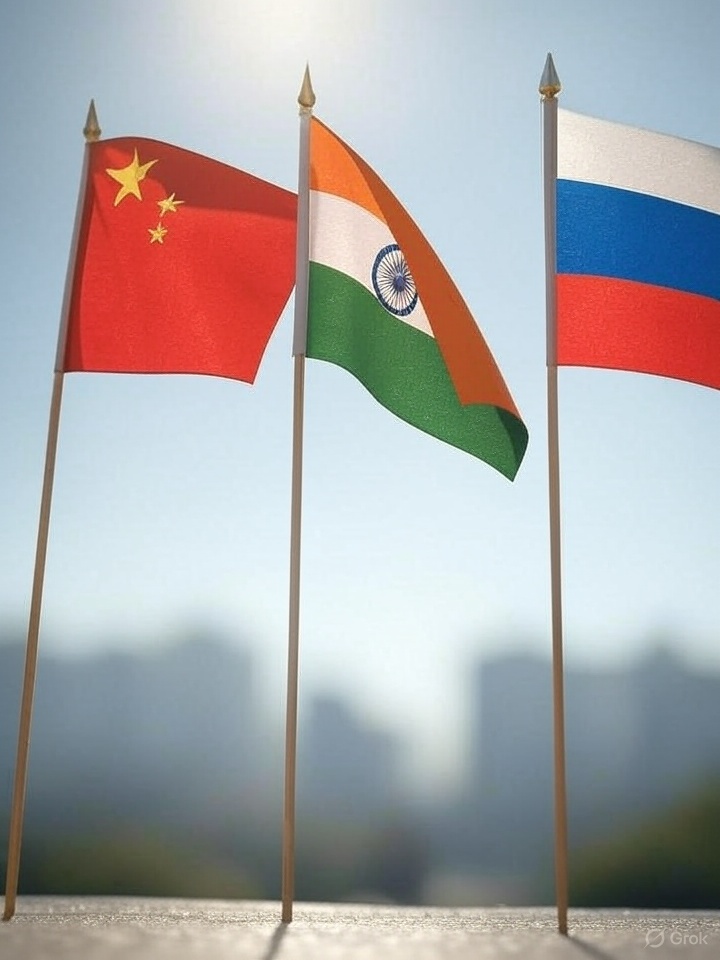The Shanghai Cooperation Organization (SCO) has kicked off a pivotal summit in Tianjin, China, from August 31 to September 1, 2025, bringing together leaders from across Eurasia to discuss security, trade, and a vision for a multipolar world order. Hosted by Chinese President Xi Jinping, the gathering underscores the deepening ties among member states, particularly Russia, China, and India, amid escalating global tensions. With energy cooperation at the forefront, the summit has already yielded significant agreements that could reshape regional energy flows and challenge Western dominance in international affairs.
High-Level Meetings Drive the Agenda
Are you Paying High Taxes in New Jersey, New York, or California?
The summit has been marked by a series of high-profile bilateral and multilateral meetings among the presidents of Russia, China, and India. Russian President Vladimir Putin met with Xi Jinping on the sidelines, hailing the “unprecedentedly high” level of relations between Moscow and Beijing. The two leaders, who have positioned the SCO as a counterweight to Western institutions, signed around 20 cooperation agreements covering trade, technology, and security. Putin’s visit also includes attending a military parade in Beijing on September 3 to commemorate the end of World War II, further symbolizing the strategic partnership.
Indian Prime Minister Narendra Modi, making his first trip to China in over seven years, engaged in talks with both Xi and Putin. These discussions focused on easing longstanding border tensions following the 2020 clashes in the Himalayas, with potential agreements on troop withdrawals and lifting trade and visa restrictions. There were hopes for trilateral dialogues among Modi, Xi, and Putin, highlighting India’s balancing act within the SCO as it navigates relations with both Eastern powers and the West. Modi’s presence also spotlighted India’s growing role as a major buyer of Russian energy exports, despite U.S. pressure to curb such imports.
Other notable interactions included Putin’s engagements with leaders from Turkey, Iran, and Azerbaijan, where agreements on trade and infrastructure were inked, further expanding the SCO’s influence.
Breakthrough on the Power of Siberia-2 Pipeline
One of the summit’s standout achievements is the signing of a binding agreement for the Power of Siberia-2 gas pipeline between Russia’s Gazprom and China’s state-owned CNPC. Described as the “most ambitious” project in the global gas industry, the pipeline will transport up to 50 billion cubic meters (bcm) of natural gas annually from Russia’s Yamal region through Mongolia to northern China. This deal builds on the existing Power of Siberia-1 pipeline, operational since 2019, and represents a major win for Russia as it seeks to pivot energy exports away from Europe amid sanctions over the Ukraine conflict.
While Mongolian President Ukhnaagiin Khurelsukh attended talks, the agreement’s details on pricing and timelines remain under wraps, with Chinese state media notably omitting mentions of the pipeline in summit coverage. Analysts view this as a strategic move by Beijing to secure long-term energy supplies at favorable terms, potentially reducing reliance on seaborne LNG imports and bolstering energy security in the face of global volatility.
India’s Energy Ties and Broader Implications
India’s involvement extends beyond diplomacy into energy dynamics. As one of the world’s largest oil importers, New Delhi has ramped up purchases of discounted Russian crude, making it a top customer despite Western efforts to isolate Moscow. At the summit, Modi emphasized sustainable energy cooperation, aligning with India’s push for diversified supplies amid its net-zero goals. However, internal SCO frictions surfaced when India declined to endorse a defense ministers’ statement on regional security, citing omissions related to attacks in Kashmir.
The summit also saw Xi announce plans to accelerate the creation of an SCO development bank, aimed at providing financing options to member states and reducing dependence on Western financial systems. This could fund energy infrastructure projects, including pipelines and renewables, across the bloc, which now represents about a quarter of global GDP and half the world’s population.
Other Key Topics: Geopolitics and Expansion
Beyond energy, the SCO leaders pledged to foster a “new global order,” with Xi and Putin coordinating efforts to support the Global South against perceived U.S. hegemony. The organization, which includes Belarus, Iran, Kazakhstan, Kyrgyzstan, Pakistan, Tajikistan, and Uzbekistan as full members, discussed potential expansions but focused on consolidating current ties. Armenia and Azerbaijan, as observers, expressed interest in full membership, though no decisions were made.
Challenges remain, including internal divisions and the shadow of U.S. elections, with leaders wary of a potential Trump return impacting global trade. Central Asian nations, in particular, are navigating the influence of both Russia and China while benefiting from shared authoritarian leanings.
Outlook for Energy Markets
The SCO summit’s outcomes signal a robust push for Eurasian energy integration, with the Power of Siberia-2 deal potentially shifting global gas dynamics by 2030. For investors and markets, this reinforces Russia’s eastward pivot and China’s quest for secure supplies, while India’s hedging strategy adds complexity to Asian energy trade. As the world watches, the SCO’s “rolling” momentum this week could accelerate a multipolar energy landscape, challenging traditional alliances and opening new opportunities in the sector. Stay tuned to Energy News Beat for more updates on these developments.
Avoid Paying Taxes in 2025
Crude Oil, LNG, Jet Fuel price quote
ENB Top News
ENB
Energy Dashboard
ENB Podcast
ENB Substack

